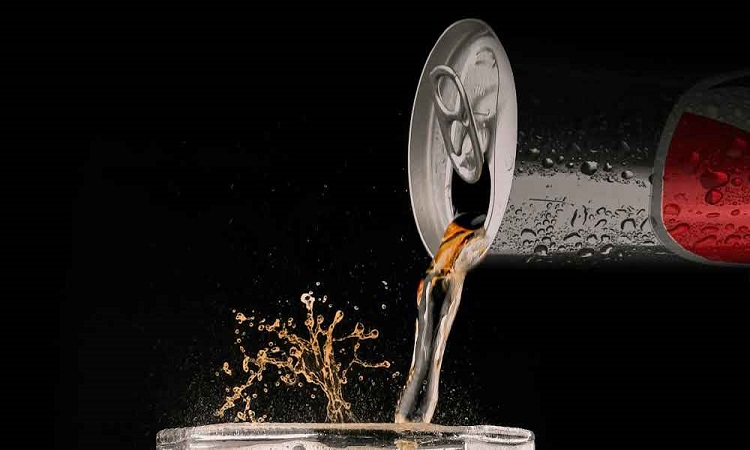 English
English

A Norwegian study that was published in the open-access journal BMJ Open found that college students who drink energy drinks have insomnia and poor sleep quality. Read further on Dynamite News:

Washington DC: A Norwegian study that was published in the open-access journal BMJ Open found that college students who drink energy drinks have insomnia and poor sleep quality.
Additionally, pupils clocked fewer hours of sleep each night the more frequently they consumed. However, the results show that even a single can, one to three times per month, is associated with an increased risk of sleep disturbance.
Read This Also: Furry fruit improves mental health-- fast
According to the researchers, energy drinks have variable amounts of sugar, vitamins, minerals, and amino acids in addition to an average caffeine concentration of 150 mg per litre. Touted as physical and mental rejuvenators, they are well-liked by youths in general and college students specifically.
While there is some evidence to suggest that they reduce sleep quality, it's not clear exactly which aspects of sleep might be more or less affected, or whether there are any sex-specific differences in these effects.
To explore these issues further, the researchers drew on 53,266 eighteen to 35-year-old participants of the Students' Health and Well-being Study (SHOT22 study)---the most recent wave of a large national survey of college and university students in Norway.
The students were asked how often they drank energy drinks, with the response options of daily, weekly (once; 2-3 times; 4-6 times), monthly (1-3 times), and seldom/never.
Read This Also: Cognitive behavioural therapy can alter brain activity in kids with anxiety issue
They were also asked detailed questions about their usual sleep patterns: when they went to bed and got up; how long it took them to fall asleep (sleep latency); wakefulness after going to sleep. Sleep efficiency was then calculated from the total nightly hours of sleep vs time spent in bed.
Insomnia was defined as experiencing difficulties falling and staying asleep and waking early on at least 3 nights of the week, plus daytime sleepiness and tiredness for at least 3 days of the week, for at least 3 months.
However, there was a clear dose-response association for both sexes between energy drink consumption and fewer hours of sleep.
Both men and women who reported daily consumption slept around half an hour less than those reporting only occasional or no consumption. Similar associations were also observed for waking after falling asleep and taking longer to fall asleep.
Increasing consumption was associated with a corresponding increase in both nocturnal wake time and time taken to fall asleep--poorer sleep efficiency.
Insomnia was also more common among both women and men reporting daily consumption than among those reporting occasional or no consumption: 51 per cent vs 33 per cent (women) and 37 per cent vs 22 per cent (men).
Overall, higher energy drink consumption was associated with an increasing risk of sleep problems across all the aspects studied, with the strongest associations for short sleep duration.
Compared with those reporting no or only an occasional energy drink, men who reported daily consumption were more than twice as likely to say they slept fewer than 6 hours/night, while women were 87 per cent more likely to do so.
But even those reporting having an energy drink just 1-3 times a month were still at heightened risk of sleep problems.
This is an observational study, and as such, no firm conclusions can be drawn about the cause.
The researchers acknowledge that reverse causality--whereby energy drink consumption might be a consequence of poor sleep rather than the other way round--might explain the associations found.
There was no information either on the timing of consumption or the exact quantities drunk, and the study relied on self-assessment rather than objective measures of consumption and sleep patterns.
Nevertheless, the researchers conclude: "The results from the current study show that there is a robust association between the frequency of [energy drink] consumption and the different sleep parameters.
"Identifying modifiable risk factors for sleep problems among college and university students is vital and our results suggest that the frequency of ...consumption could be a possible target for interventions." (ANI)
No related posts found.